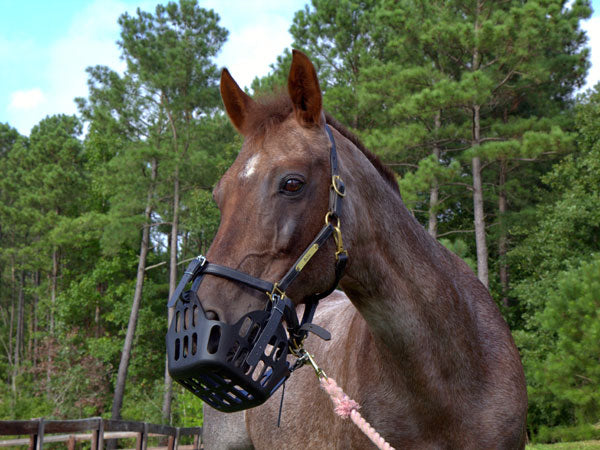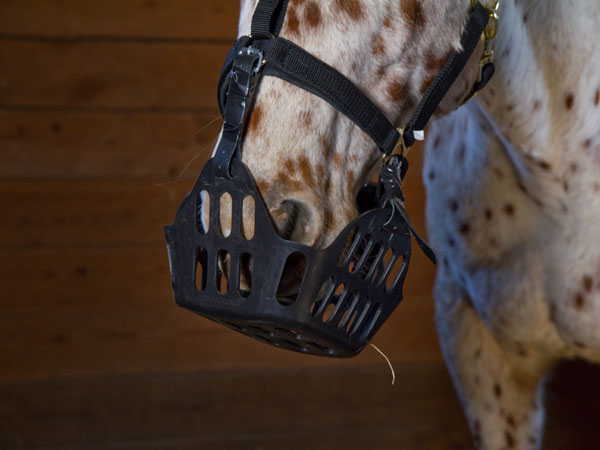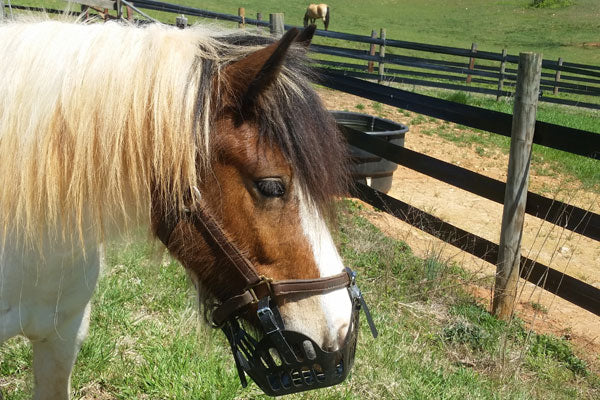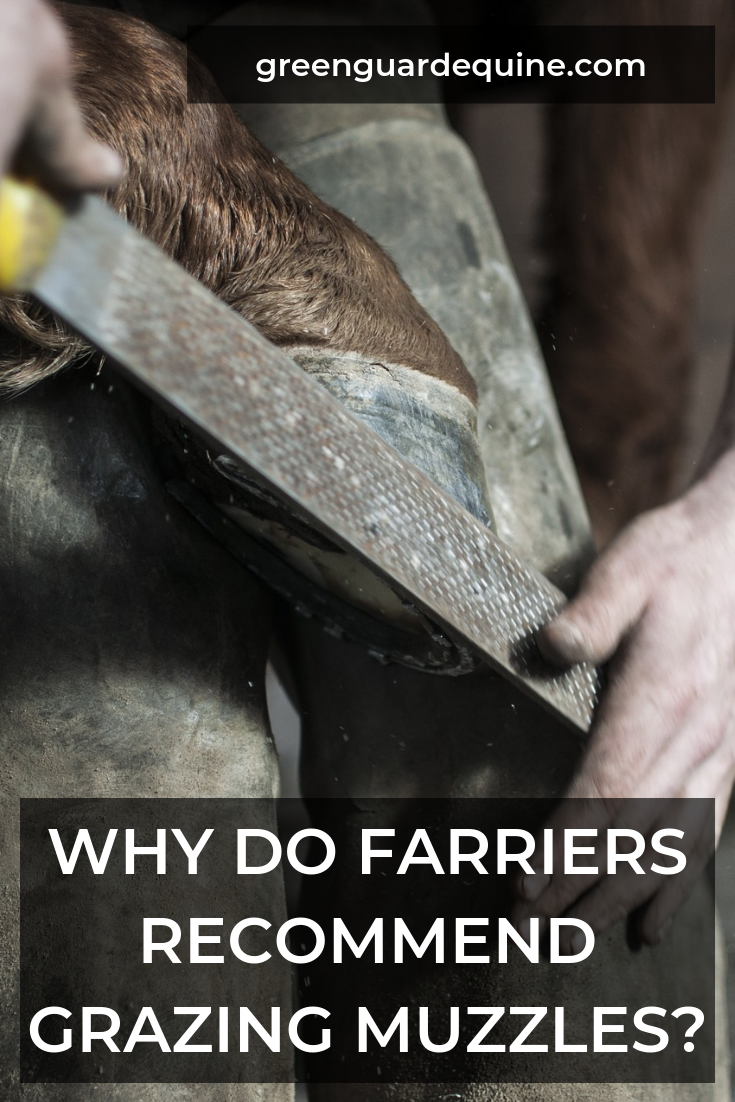One of the biggest challenges of my career as a farrier was convincing horse owners that their horses should lose weight before they foundered. If you’ve worked with foundered or laminitic horses, you know how challenging it can be for you, the horse, and the owner.
It’s heartbreaking to watch a horse suffer needlessly; it’s one reason many of us chose this profession. Rehabilitating horses is rewarding, but most of us would prefer to prevent equine diseases like founder and laminitis in the first place!

Don't wait for a horse to founder before trying a grazing muzzle.
Excuses ranged from the clueless -- “But he’s pleasantly plump!” or “He’s never had a problem before!” -- to the ridiculous -- “All he gets is grass and hay!” and “My horse will hate me!” Aside from increasing their exercise, some of my suggestions included:
- Slow feeders
- Hay nets
- Dry lots
- Grazing muzzles
If a horse must be kept on a grass pasture, the most effective solution is a grazing muzzle. Using a muzzle allows a horse to live a more natural lifestyle with herdmates, while reducing caloric intake from grass. However, most of my clients who had tried grazing muzzles in the past reported issues with:
- Rubbing
- Getting the muzzle off
- Getting herdmates to remove the muzzle
- Running from the owner when the muzzle was presented
- Holes getting clogged or wearing too large to be effective
- Refusing to eat while wearing the muzzle
- Destruction of the muzzle
Trying to convince horse owners to try a grazing muzzle was a daily struggle. Unfortunately, my concerns proved correct in far too many cases, and laminitis ensued, along with a 6-12 month rehab journey.

A grazing muzzle may look weird, but it's an essential piece of horse tack if you have an easy keeper.
One day, I heard from a client who had problems keeping a muzzle on her laminitic horse. Desperate for a solution, she went through the trouble of ordering a GreenGuard muzzle from Europe. I’d heard of this brand, but hadn’t seen it in person. My clients wouldn’t order them because the price was much higher than that of the typical grazing muzzles available in the US.
Miraculously, my client’s “Houdini” horse didn’t get the GreenGuard muzzle off. He didn’t mind wearing it, it didn’t rub, and his pasture mates weren’t removing it.
Could this be the answer to my prayers?
The GreenGuard muzzle was such a success for my client that she became the North American distributor for the brand. The muzzles are now much more affordable, and durable enough to last for years, unlike their predecessors, which only lasted a few months, if that!

Farriers, rehab specialists, and equine vets are starting to discover the Greenguard muzzle.
I became a reseller myself so I could demonstrate their effectiveness to my clients directly. Local veterinarians, fellow farriers, and clients started recommending them as well. This muzzle has truly saved lives!
If you want to help your clients -- and yourself! -- let them know that there is finally a comfortable and effective muzzle available!





